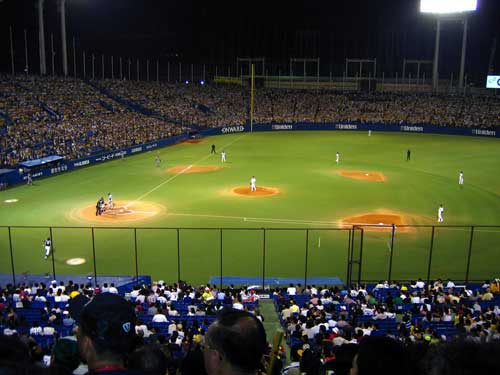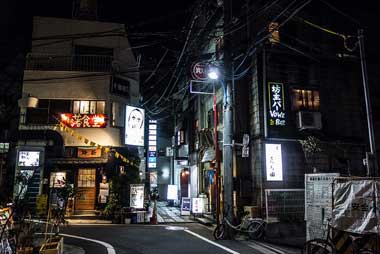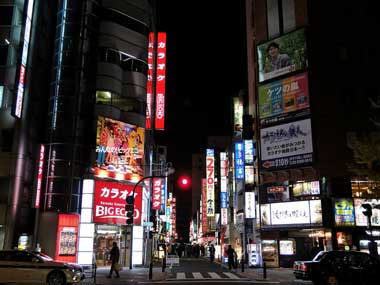If you plan to visit Tokyo and fancy taking in some sports while you're there, then you're in luck. This city is a true feast for the fan of physical activities and competitive games. Here you will find professional teams in baseball, football and sumo, plus all kinds of other thrilling events. Here's a guide to the biggest sporting attractions in the Japanese capital.
Baseball
America's Pastime is just as popular in Japan as it is Stateside, so it is little surprise to find Tokyo is a hub for baseball. In fact, the Japanese are so crazy about baseball that even the high-school playoff matches that take place every year regularly bring in millions of viewers.
Tokyo is home to two pro baseball teams: the Yakult Swallows and the Yomiuri Giants. The Swallows play at Meiji-Jingu Stadium in Shinjuku, and have a richly decorated history, having taken home 5 Japan Series championships (though none in the last 13 years). Their accomplishments are, however, entirely dwarfed by their city rivals, the Giants. From their base at the 46,000 capacity Tokyo Dome in Bunkyo, the Giants have notched up 22 Japan Series titles, the most recent of which they took home in 2012.
Tickets for both teams go on sale roughly two weeks before match day and can be picked up from outlets across the city.
Football
Though not quite as avidly followed as baseball, football has risen in the last twenty years or so to become one of Japan's favourite games. Its national championship, the J-League, is the most successful soccer leagues in Asia, with huge crowds and many of the continent's best players.
A number of football teams play their home games in the capital, most prominent amongst them FC Tokyo and Tokyo Verdy. Though they have never won the J-League itself, FC Tokyo have twice won the J-League Cup and once won the Emperor's Cup back in 2011. If you fancy watching the beautiful game in Tokyo, then pop down to their Ajinomoto Stadium in Chofu. Tokyo Verdy also play their home games at this ground, though they are currently plying their trade in the nation's second tier, after relegation in 2008. Prior to that, however, they were one of Japan's most famous and decorated teams, with 2 J-League titles, 3 J-League Cups and 2 Emperor's Cups below their belts.
The season runs from March to December and tickets can be purchased all over Tokyo.
Sumo
For a truly traditional Japanese sporting experience, the curious traveller should try Sumo wrestling. Though the exact story of its origins is sketchy, Sumo has been around for about 1,500 years. If you've never seen it before, it involves two huge men, usually well above 6 feet and 20 stone, aiming to shove each other out of a small, sand covered ring. To the untrained eye this might seem awfully simplistic but, in reality, it is a game of intense skill, razor sharp timing and quick ingenuity as well as brute force.
There are over 48 sumo holds in all, involving shoves, trips, slaps, throws and carries and, though most matches won't last longer than half a minute, they often feature a dizzying combination of moves.
You can check out Sumo at the Kokugikan, in Sumid-ku in January, May or September. During each of those months, Tokyo hosts 15 day tournaments and cheap, unreserved tickets are usually available at the stadium. For the best seats, however, you will either need to book long in advance or know somebody with connections.




